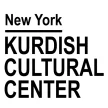 Gültan Kışanak, ed., The Purple Color of Kurdish Politics: Women Write from Prison. Translation from the Turkish coordinated by Emek Ergun, Ruken Isik, and Janet Biehl London: Pluto Press, 2022. Nonfiction.
Gültan Kışanak, ed., The Purple Color of Kurdish Politics: Women Write from Prison. Translation from the Turkish coordinated by Emek Ergun, Ruken Isik, and Janet Biehl London: Pluto Press, 2022. Nonfiction.
Discussed at our Book Club on February 7, 2023. Translation coordinator Emek Ergun joined us. Janet Biehl is already a Book Club participant.
In 2016 the Turkish state cracked down on the pro-Kurdish HDP, detaining and arresting numerous Kurdish politicians and activists on spurious charges of “terrorism.” Among the many arrested was Gültan Kışanak, the co-mayor of Amed. The arrests of so many talented, brave, and experienced people was devastating for Kurdish politics and marked the onset of the process of criminalizing the HDP.
Once Kışanak was in prison, her friends suggested that she write her autobiography. After all, she had personally experienced the horrors of the Diyarbakir dungeon in the 1980s, then had emerged to become a brilliant force within the Kurdish movement as a journalist, editor, women’s movement activist, member of Parliament, and finally Amed co-mayor.
But instead of writing her own story, Kışanak chose to turn to the many Kurdish women politicians with whom she had struggled for women’s rights and who now, like her, were imprisoned. She invited them to write essays recounting their own political biographies. The logistical difficulties of carrying out such a project while behind bars were enormous–the women were in prisons scattered across Turkey, and some were inaccessible. Ultimately Kışanak managed to collect the stories of 22 Kurdish women who had served as mayors, co-mayors, town councilors, and MPs.
To bind the essays together in a book, she wrote a detailed introduction that tells the story of women’s organizing within Kurdish and pro-Kurdish political parties in Turkey since 1990. The first Kurdish party, formed in 1990, had traditional gender organization: men made all the decisions and ran for office, while women did menial, clerical work if any. Party programs and speeches did not mention women’s issues or even address women as voters.
Kışanak’s introduction recounts how Kurdish women changed this situation. They had to fight patriarchy—both its institutional structures and its mentality—within the party. Despite pushback from male allies, they persisted, organizing a series of women’s committees, achieving women’s quota for party positions, banning polygamy among party leaders, and more. They achieved dual leadership for executive positions, with men and women co-chairs at all levels.
Then women stepped forward to run for office and ultimately proved that women could not only win elections but be re-elected. Then they extended the concept of co-chairing within the party to co-mayoring within local government. In 2014 numerous women were elected as co-mayors. Once women were in office, many voters preferred them, as women elected officials tended to serve the people and work to improve their lives. This enormous advance came to an abrupt end with the arrest wave of 2016.
Still, it was a remarkable evolution over the course of only twenty-four years. The individuals essays are stories of women who brought about this change in particular places, recounting the particular challenges they encountered and victories they achieved. The book was published in Turkish in 2020.
The obstacles that Kurdish women faced and overcame will inspire women fighting patriarchy around the world. Their courage and persistence remain extraordinary, since by struggling for women’s freedom in Turkey, they risked brutal imprisonment. While some have since been released, others, including Kışanak herself, remain behind bars. For their sake and for the sake of women everywhere, this book deserves a wide readership.
Available for purchase from Pluto Press.















